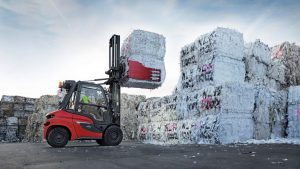As you explore the world of diesel forklifts, a universe of innovation awaits. Imagine a future where fuel efficiency is not just a concept but a reality that shapes the way we handle materials. The latest advancements in this field have redefined the standards of performance and sustainability. Intrigued by the possibilities these innovations offer, you’re on the cusp of discovering how these developments are reshaping the landscape of forklift operations. Stay tuned for a glimpse into the cutting-edge technologies that are propelling diesel forklifts into a new era of efficiency and effectiveness.

Evolution of Fuel Injection Systems
The evolution of fuel injection systems has greatly improved the efficiency and performance of diesel forklifts in recent years. Modern fuel injection systems utilize advanced technology to precisely control the amount of fuel injected into the combustion chamber, resulting in more efficient fuel combustion. This optimization enhances power output while reducing emissions, making diesel forklifts more environmentally friendly and cost-effective to operate.
Integration of Hybrid Technology
With advancements in fuel injection systems enhancing efficiency, the integration of hybrid technology in diesel forklifts is revolutionizing the industry by combining the benefits of electric power with traditional diesel engines. This hybrid system allows for improved fuel economy, reduced emissions, and increased overall performance. The electric component assists during acceleration and lifting tasks, while the diesel engine provides continuous power for extended operation periods.
Optimized Engine Management Software
Implementing advanced engine management software enhances the performance and efficiency of diesel forklifts by guaranteeing precise control of fuel delivery and combustion processes. By optimizing parameters such as injection timing and pressure, turbocharger boost levels, and exhaust gas recirculation rates, the software guarantees maximum power output while minimizing fuel consumption. This results in improved overall productivity and reduced environmental impact, making diesel forklifts more sustainable and cost-effective.
Advancements in Exhaust Aftertreatment
Advancements in exhaust aftertreatment technology play a vital role in further enhancing the environmental sustainability and performance efficiency of diesel forklifts. By integrating systems like diesel particulate filters (DPF) and selective catalytic reduction (SCR), harmful emissions are reduced greatly. DPF traps particulate matter, while SCR converts harmful nitrogen oxides into nitrogen and water vapor. These innovations guarantee compliance with stringent emission regulations while optimizing engine performance.
